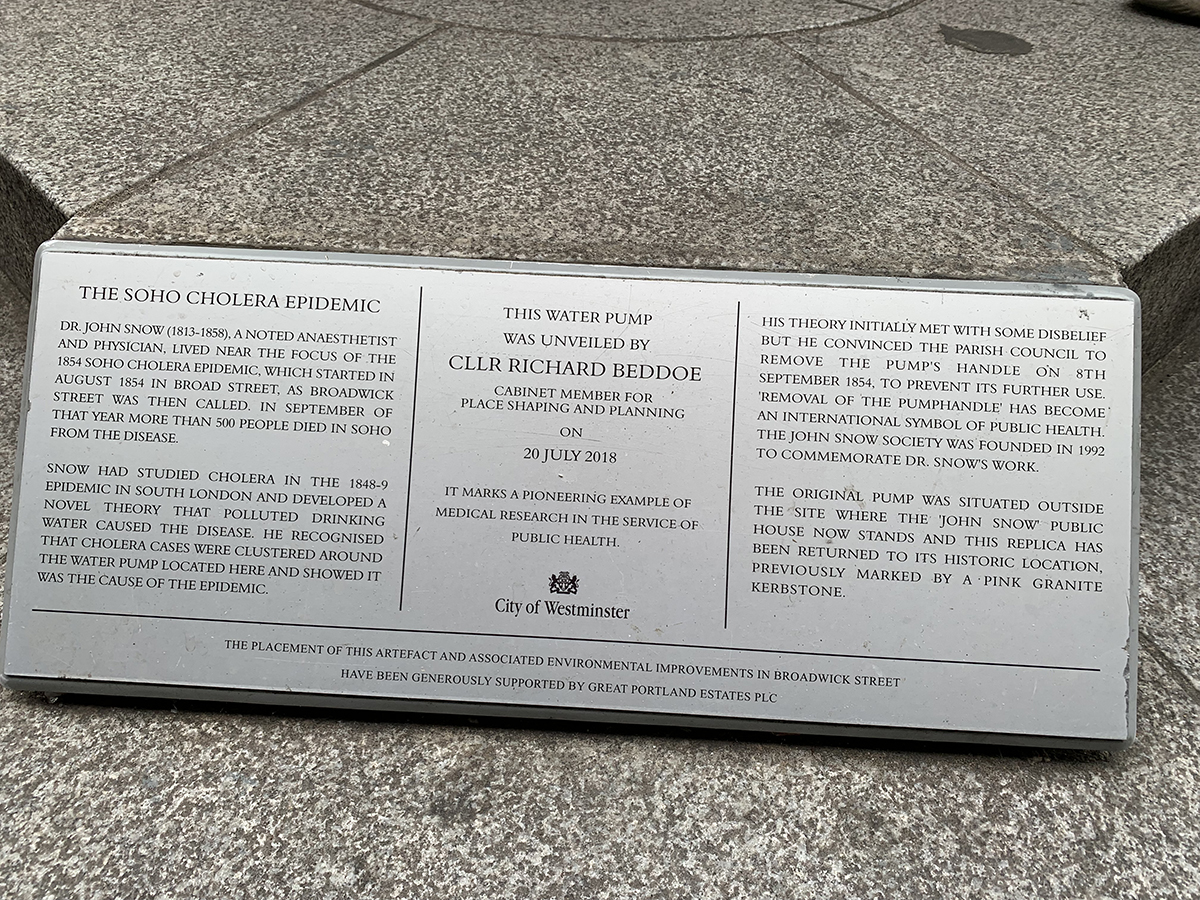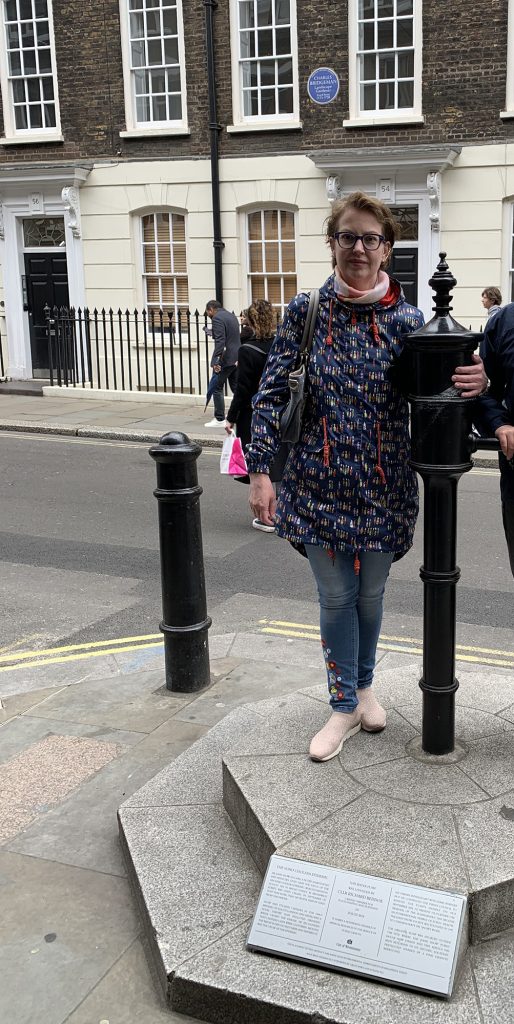The WANDER staff also spend their leisure time on water and hygiene. Specialist researcher Riika Mäkinen dragged her holiday party to Soho, London, to see the memorial of John Snow, a doctor who was considered the founder of epidemiology.


Snow is best known for his cholera research in the 19th century. At the time, cholera was thought to be spread by poisonous fumes called miasmas, but Snow, a proponent of microbial theory, believed that pathogens were spread through faeces into water and clothing. In late August 1854, a sudden and violent local epidemic broke out on Snow's home in Soho. Based on interviews, Snow drew up a map of the addresses where people had fallen ill, and found that they were particularly concentrated in the neighborhoods near the public well in Broad Street.
On 8 September 1854, at Snow's request, the City Council ordered the removal of the handle from the Broad Street well pump so that residents could no longer draw water from the contaminated well. Snow's swift action to render the Broad Street pump harmless has gone down in history as one of the first milestones in public health.
